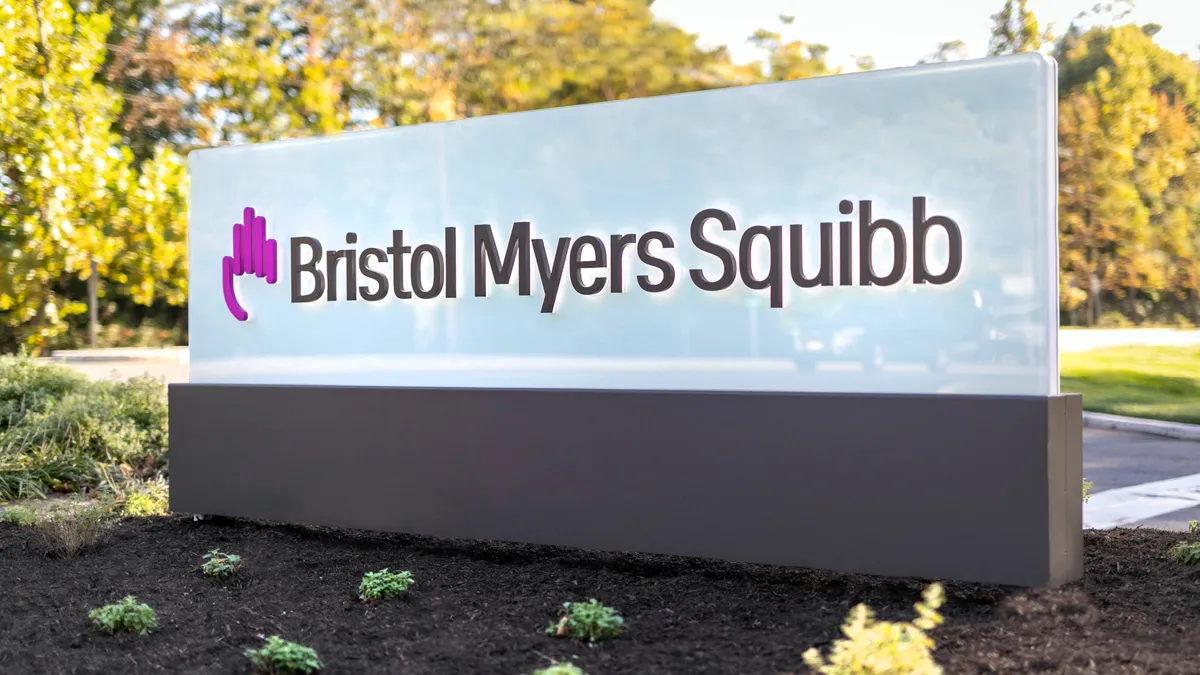The FDA has yet to approve Bristol Myers Squibb and Karuna Therapeutic’s highly-anticipated schizophrenia drug KarXT, but with a decision date on the horizon, it’s already facing a potential competitive threat.
Because KarXT, a combination of xanomeline and trospium, is taken twice daily, New York-based Terran Biosciences is aiming to get an edge with an improved dosing schedule — its once-daily pill, TerXT, and a long-acting injection, TerXT LAI.
But that’s not its only differentiating factor.
“This is not a new formulation of KarXT, this is an entirely new drug — a prodrug of xanomeline and trospium,” said Dr. Sam Clark, Terran’s founder and CEO.
Because Terran’s is a novel prodrug, a type of therapy that becomes active after it enters the body, and xanomeline and trospium are decades-old drugs that are no longer under patent, Terran is hoping to also skirt the traditional patent period.
“Prodrugs are blockable if the original composition is still around, but it's not around anymore,” Clark said.
The FDA typically considers prodrugs new chemical entities, but Terran could use data from trials conducted with the parent molecule to gain accelerated approval. However, the company would still need to wait out BMS’s five-year marketing exclusivity period to get its products to consumers. Even so, Terran could cut into KarXT’s share of the schizophrenia market — anticipated to reach $7.11 billion by 2028 — five years earlier than its potential patent expiration. This could be a boon for people with this highly debilitating condition who desperately need better treatment options.
Schizophrenia’s blockbuster potential
Hopes are high for KarXT, which is poised to become the first new type of drug for schizophrenia to reach patients in decades.
Bristol Myers Squibb acquired KarXT as part of a $14 billion deal with Karuna in December 2023. The drug, which analysts predict could reach $10 billion in peak sales, marks a potential bright spot in the company’s portfolio growth plans as it approaches its Sept. 26 PDUFA date.
The muscarinic agonist is generating substantial buzz because it appears to help control a broad swath of schizophrenia symptoms, without the debilitating side effects of traditional antipsychotics. Some 70% of schizophrenia patients abandon treatment, which can cause side effects such as weight gain, metabolic syndrome or Tardive dyskinesia, an involuntary movement disorder.
If its efforts pan out, Terran’s once-daily pill or a single multi-month injection could bring similar benefits to a patient population that struggles with drug compliance. The company’s prodrugs might also help make treatment more affordable.
“We don't know exactly what the price of KarXT is going to be, but when there is one antipsychotic on the market, or one product, it typically gets priced higher than when there are multiple different versions of that original molecule,” Clark said.
A scientific challenge
It was no small feat for Terran to create its xanomeline and trospium prodrug, Clark said, and experts were originally skeptical.
“When we took it to our science team, we had to develop some new strategies,” he said. “It took two years and, at one point, 200 full-time chemists. We made 700 prodrugs.”
The massive undertaking came while the company has worked to develop its mid-stage drug idazoxan, which it licensed from the French pharmaceutical company Pierre Fabre Médicament for schizophrenia and Alzheimer’s disease, and the selective serotonin 2A receptor antagonists eplivanserin and volinanserin, licensed from Sanofi to treat various neuropsychiatric illnesses.
“We want to make sure patients get the absolute most modern technology quickly."

Dr. Sam Clark
CEO, founder, Terran Biosciences
Typically, improved versions of drugs don’t hit the market for 10 to 15 years after the original launches. Often, it’s a bid by the company to retain its market share as the patent expires, Clark said.
“We saw that with the new Abilify long-acting injectable from Otsuka Pharmaceutical. When its patent expired, the company replaced its once-per-month formula with a new version taken once every two months. They were set to lose a lot of revenue, so they upgraded to the new version to keep a branded product on the market,” he said.
Terran aims to beat BMS to the punch by getting its potentially improved option to patients sooner.
“We want to make sure patients get the absolute most modern technology quickly. Sometimes in the past, with antipsychotics, this has been delayed,” Clark said.
While Clark said company officials are confident in their plan, questions remain. The biggest is: Will their prodrug formulations, which are still in preclinical development, perform as expected?
“I can't say that ours is automatically better, because we haven't put it in humans,” Clark said. “But our goal is to improve. So far, in the animal models, we've improved versus our studies with original xanomeline and trospium.”
Company officials must also meet with the FDA to confirm the feasibility of using the accelerated approval pathway so they’re ready to act if KarXT is approved.
“FDA’s 505(b)(2) pathway allows a drug developer to reference data from the approved parent molecule’s trials. This approach still requires a pharmacokinetic bridging study (phase 1), but in some cases may not require larger efficacy trials (phase 2/3) for approval,” Clark said in an emailed statement. “Terran plans to initiate the PK bridging studies to compare the PK of TerXT to KarXT shortly after BMS gets FDA approval for KarXT.”



















